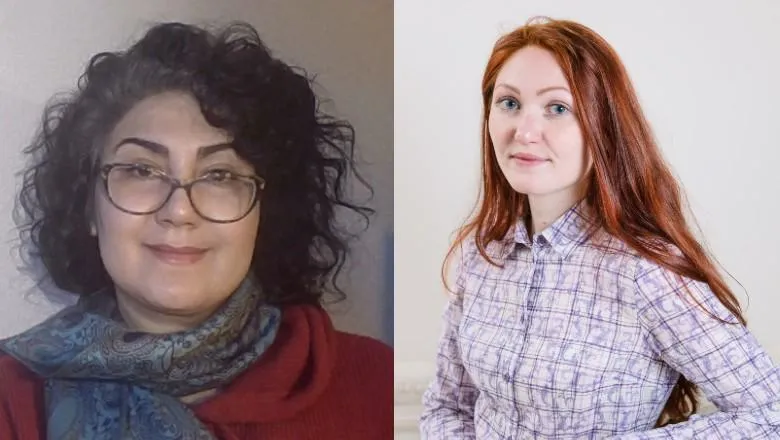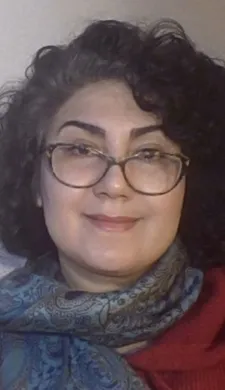“In my research I will make these stars shine brighter, by elucidating, modelling and controlling the ultrafast electron dynamics in chiral molecules and topological solids as they are manipulated by laser pulses, and I will leverage these insights for creating new types of attosecond pulses, returning back again to advancing ultrafast laser technology.”
Dr Margarita Khokhlova
13 November 2023
King's academics receive funding from the Royal Society
Early career researchers from the Faculty of Life Sciences and Medicine and the Faculty of Natural, Mathematical & Engineering Sciences have received over one million pounds in funding from the Royal Society.

The Royal Society has announced the recipients of three of its early career research schemes; University Research Fellowships, Dorothy Hodgkin Fellowships and Newton International Fellowships, with over £80m in funding being allocated to researchers for their work in physical, mathematical, chemical, and biological sciences. This funding gives researchers long-term support to pursue scientific research, create research groups and build international collaborations.
This year two King’s academics have been awarded university research fellowships.

Dr Margarita Khokhlova – Department of Physics
Project: From the Advance of Attosecond Light Sources to Ultrafast Dynamics of Chiral and Topological Matter and Back Again
This project focuses on expanding attosecond physics, which uses ultrafast laser technology to provide a snapshot of how electrons move at high speeds in atoms, to chiral molecules – a couple of molecules which are mirror twins of each other. This is commonly found in molecules defining live matter, like amino acids and sugars, where one twin of the chiral molecule might be involved in vital activity and the other might be neutral or harmful. Recognising and separating these molecules are important tasks for biochemistry and future applications in pharmacy, and attosecond light pulses can help solve them.
The project will receive between 1.5 and 2 million pounds over eight years of fellowship, which includes one PhD studentship and one short-term post-doctoral research assistant. The project combines two directions of attosecond science: making attosecond light pulses brighter, shorter and more controllable and the study of new ultrafast electronic dynamics in matter, with the aim of unlocking new phenomena with the improved attosecond light pulses. It also explores topological solids, peculiar ultrafast resistance and conductivity of which are controlled by attosecond light pulses, allowing for new types of ultrafast electronics.
“The newest stars of attosecond science are forms of matter with peculiar geometry: chiral molecules, mirror-image-twins with sometimes vitally different properties which are in the foundation of life; and topological materials, solids with electrons twisted in highly-organised ways at the foundation of cutting-edge electronics.

Dr Azadeh Maleknejad – Department of Physics
Project: Particle Physics of the Early Universe, Origin of Matter, and Gravitational Waves
This theoretical project aims to gain a better understanding of the particle physics, quantum field theory aspects of the early universe and cosmic inflation. It will aim to connect the fundamental physics behind the expansion of the early universe before the Big Bang with our knowledge of how matter interacts, suggested by the standard model of particle physics. By using gravitational waves and cosmic microwave background missions (CMBs) (remnants of the first light from the Big Bang), it will also explore possible models that can provide common origins for the long-standing puzzles of cosmology and particle physics, such as dark matter.
“Future gravitational wave observations across 21 decades in frequency (a type of frequency range) provide a great opportunity to explore new physics well beyond the reach of particle colliders on Earth. By studying the cosmic perturbations of well-motivated models and their observables, I will test them with future gravitational waves and CMB missions. These future CMB missions will measure the polarisation of CMB photons which carries valuable information about the primordial gravitational waves at very large wavelengths. If discovered, primordial gravitational wavelengths will bring valuable information about the physics of inflation.”
A Newton International Fellowship and £420,000 have also been awarded to Dr Nikunj Patel, for his project: High-throughput Live Cell FTIR To Accelerate Drug Discovery.
Newton International Fellowships offer up to £420,000 over three years and give support to non-UK researchers in their early career who wish to conduct research in the UK. Starting from January 2024, Dr Patel will work in the laboratory as a Newton International Fellow for three years with his sponsor, Dr Ka Lung Andrew Chan, a Reader in Molecular Spectroscopy at King’s.
“Dr. Nikunj's work will develop an innovative, cost-effective method for high-throughput drug screening. This method involves shining infrared light on living cells to extract specific information about how cells respond to treatment. This information-rich data will enable a predictive module to be developed to overcome the current highly inefficient drug screening methods, reducing the cost of drug development, minimise the need for animal models, and decrease risks to patients."
Dr Ka Lung Andrew Chan, a Reader in Molecular Spectroscopy
Sir Adrian Smith, president of The Royal Society, said: "The importance of long-term funding for scientists at the early stages of their research careers cannot be understated. These scientists are fundamental to the future of research and innovation in the UK, and it is essential that we give them the support and stability they need to allow them to pursue novel and groundbreaking research. Through its globally competitive grant schemes, The Royal Society aims to ensure we attract the brightest scientists from across the world.”


